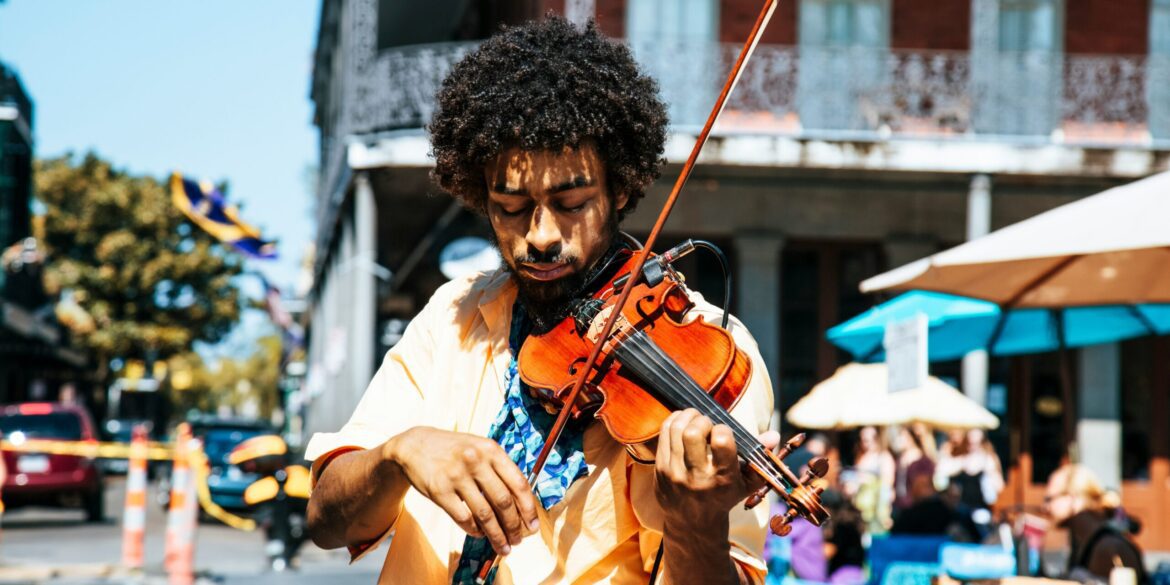On Sunday afternoon, RiverFest made its return to L.A. State Historic Park, celebrating the Los Angeles River through eight hours of environmental arts, music, storytelling, and eco-conscious programming. Hosted by Friends of the Los Angeles River (FoLAR), the event drew residents from across the region and marked the organization’s fourth annual festival on August 3, building on the historic momentum of past years.
RiverFest’s free admission—and required registration—welcomed all ages to the scenic park at 1245 N. Spring Street from 2:00 p.m. to 8:00 p.m. Guests were invited to explore over 50 community booths featuring local environmental groups, Indigenous organizations, artists, and partner nonprofits such as Heal the Bay, the Water Replenishment District, and 100 Acre Partnership. FoLAR’s aim to foster equitable access and community connection to the river corridor was evident throughout the day.
The main performance stage hosted an eclectic lineup of local talent. Highlights included sets by Latin Grammy-nominated singer Alih Jey, Brandon Paul, School of Rock Venice, spoken-word performances by Arielle Estoria, improv from Cold Tofu, and vibrant dance by Ballet Folklorico and Azteca troupe Xipe Totec. The schedule featured an opening DJ Dominiq set and closing remarks punctuating the community experience.
Complementing the music were visually arresting mural and live art installations by groups like LA River Arts, Forager Crafts, and Frogtown Arts. A marketplace also offered handmade goods, local food trucks, and eco-friendly giveaways. A raffle featuring prizes such as Universal Studios tickets, Patagonia gear, and private tours solidified the festival’s fundraising efforts.
At the core of RiverFest was FoLAR’s environmental educational mission. Interactive eco‑activities included hands-on learning stations aimed at families and youth, storytelling sessions, conservation workshops, and sessions exploring Indigenous river perspectives and environmental justice themes. These experiences underscored RiverFest’s narrative: the LA River is as much a cultural and ecological asset as it is a natural waterway.
FoLAR also utilized the event to advance its “Keep the River Rover Rolling” campaign, with a $20,000 fundraising goal to repair its mobile environmental education center, the River Rover. The River Rover brings programming directly to schools, libraries, and underserved neighborhoods, and FoLAR emphasized that proceeds from VIP ticket sales and raffles would support its return. VIP packages—priced at $125—offered perks including VIP parking, lounge access, premium stage seating, complimentary drinks (for attendees over 21), and a themed VIP tote bag with gifts from brands like Art Spark, Dr. Bronner’s, and Parks Project. Approximately 1,000 people were expected to attend the festival.
RiverFest’s return caps a lively weekend in Los Angeles that included youth sports, art markets, and farewell celebrations across the city. Among them was a spirited Junior 6‑Man Beach Volleyball Tournament featuring costumed teams and energetic rally‑score play for players aged 14 and under. Also included were cultural events like Cole’s French Dip farewell party and multiple music nights across L.A.—underscoring the city’s blend of tradition, creativity, and community celebration.
As FoLAR Executive Director Candice Dickens‑Russell stated, “The L.A. River has always been a symbol of resilience, and RiverFest is a chance to celebrate that spirit. It reminds us that even in the face of challenges, we will continue to come together, reimagine our collective future, and find joy and connection in our community.”
Looking forward, RiverFest is expected to continue growing as FoLAR expands its outreach, conservation advocacy, and education through events like the Great LA River CleanUp and River Fellows program. By weaving together artistry, community engagement, and environmental action, the festival reflects a long-term vision for the river as a living connector across neighborhoods, ecosystems, and generations.
RiverFest 2025 has established itself as a cornerstone for local activism and creative expression—transforming the LA River from overlooked infrastructure into a shared stage for cultural celebration and ecological stewardship.

